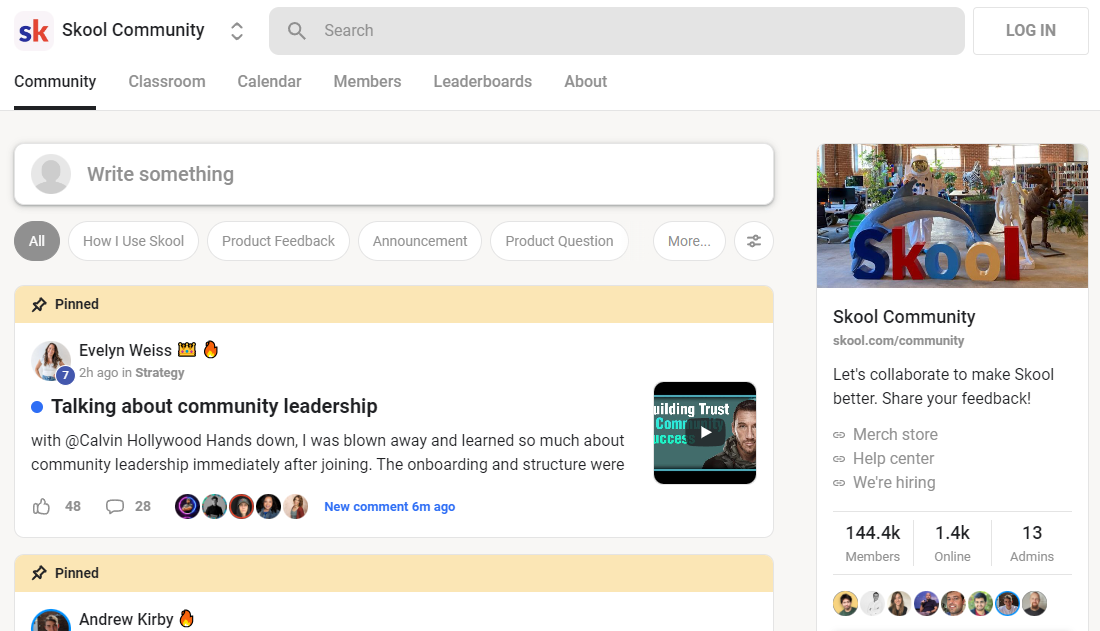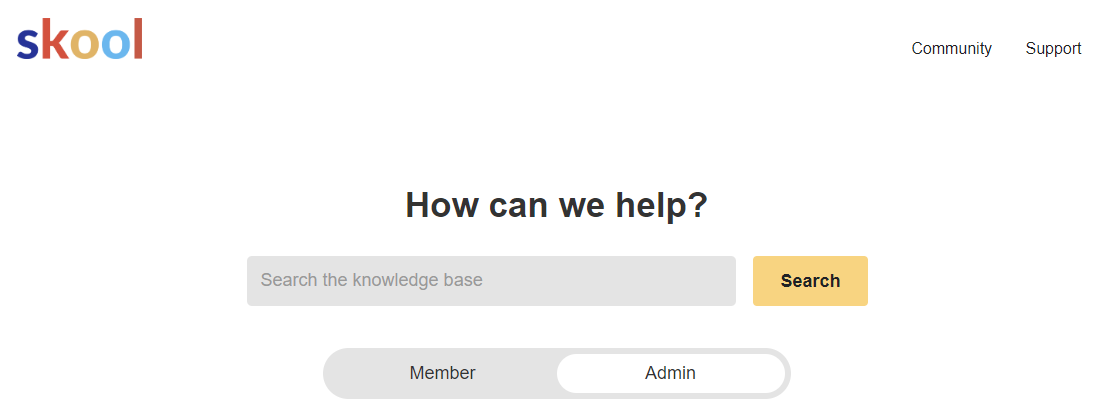Skool uses best-in-class gamification features that enhance engagement. For example, participants can earn levels based on their engagement, which unlock course content and various other incentives that better motivate them.
Previously, creators had to use different tools for organizing programs, building neighborhoods and managing e-mail advertising and marketing. This developed a disjointed experience for both designers and their target markets.
Producing Courses
Skool has a simple, straightforward user interface and prioritizes neighborhood building and course organizing over various other features. It allows developers to develop a vibrant area for their training courses and mentoring programs by connecting them with the ideal audience. This additionally helps them check the health of their material business with the help of a basic dashboard.

To start, a person can register for a free 14-day trial of Skool. Afterwards, they can pay $99 a month for the system to host a single area. There are no other pricing options readily available for the moment. Skool also processes repayment and pays creators weekly, yet it does bill a 2.9% deal charge.
Among the special elements of Skool is that it can be utilized to develop interactive programs. These can include online webinars, team projects and real-time discussions. These types of training courses encourage participation and increase course completion prices. In addition, Skool’s gamification functions aid to encourage community involvement. For example, members can earn factors and unlock training course material when they reach specific levels in the area.
Customers can also utilize the social feed upon Skool to publish updates and communicate with others in the neighborhood. The feed looks like a Facebook team, however with a much more regulated method of uploading. This helps to avoid the kind of spam and misuse that takes place on various other social platforms.
Taking care of Communities
Skool is a very simple system to make use of, for both participants and admins. Its simpleness is among its primary selling points– when somebody joins your neighborhood they won’t be faced with a bunch of alternatives or attributes that can thwart their experience and perplex them.
The system begins as a private group by default, but you can quickly transform this to open your area to anybody that you intend to become part of it. Once you’ve done this you’ll see a social feed like you would on Facebook Groups or WhatsApp (but without all the fraud stuff and swearing).
You can additionally add a class tab to your neighborhood that you can make use of to share academic web content with your participants. This feature is specifically valuable for areas that are concentrated on discovering or professional development as it helps to create an instructional framework and makes it simple for participants to track their progression. On top of that, the platform has gamification components that enable participants to earn points by suching as messages or remarks. When they reach a certain level they can unlock resources, such as training courses, further driving engagement.
The other amazing point is that Skool has a mobile app, just like Mighty Networks or Slack, so participants can stay on par with your community and engage on the go. This is a wonderful way to motivate and involve your participants and to help them get support from each other when they need it, rather than simply turning to you for responses.
Skool Monetization
Skool focuses on gamification, allowing individuals to gain factors and badges for their contributions. This encourages members to engage with the neighborhood and contribute to discussions. In turn, this helps them level up and unlock rewards like videos and other content. Admins can also establish training courses to be unlocked at specific degrees to additional drive involvement.

The Skool interface is very clean and intuitive. Its main features include the Community tab, which looks much like a Facebook group feed. Here, individuals can upload comments and message as well as upload photos, links and video clips. Members can additionally check out each others profiles and connect with them. In addition, individuals can produce private groups in the area to go over certain subjects.
One more function of Skool is the Classroom tab, which is similar to a YouTube livestream or Zoom conference. Using this, administrators can organize trainings and webinars for their students. They can additionally add occasions in the schedule to remain updated on upcoming events and Skool Monetization.
However, some aspects of Skool might use improvement. For instance, the system isn’t adaptable when it involves money making as customers can not use several pricing tiers for their training courses and community subscriptions. In addition, the device lacks an email marketing function, which might be a bargain breaker for some course creators. It additionally does not have indigenous video organizing, suggesting that individuals require to use outside systems like YouTube, Loom and Vimeo for their video clips.
Including Content
The process for including web content and engaging with members on Skool is very easy and straightforward. Admins can produce posts with text, GIFs, video clips and polls. They can additionally include event calendars to notify community participants of upcoming group Zoom calls or live streams. In addition, they can utilize Skool’s email broadcast feature to send a message to the entire area with a solitary click. This removes the requirement for marking and checklist segmentation, which can be cumbersome.
Moreover, Skool’s gamification functions can improve engagement and customer retention. It motivates participants to connect with the material on a regular basis by rewarding them with various advantages. These include opening training course content, gaining points and gaining an area on community leaderboards.
While Skool supplies a host of valuable functions for creating and supplying on the internet programs, it’s not for everybody. The platform is best for coaches, consultants and various other information business owners. However, the price can be an obstacle for some people aiming to monetize their on the internet web content.
Additionally, the lack of standard tiers and a brief free trial might be a deterrent for numerous. Additionally, the platform’s laser-focus on eLearning can make it less desirable for individuals who intend to sell various other digital items. However, despite these drawbacks, Skool Monetization is still a sensible choice for anybody wanting to produce and generate income from on-line programs.